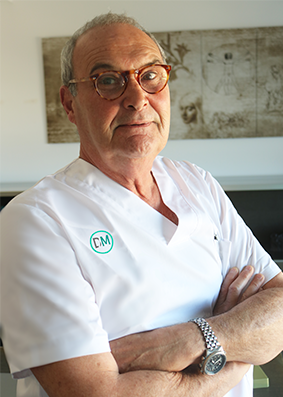"Orthopaedic surgeon specialising in hip and knee prosthetic surgery in Spain"
No waiting list
Mallorca is an excellent destination for UK patients to receive their treatment.
Surgery fixed prices
All hip and knee prosthetic surgery procedures.
Medical complications insurance
Specialised doctor
Specialist in Orthopaedics and Traumatology with more than 20 years of experience, to help you achieve a full recovery.
No waiting list
Surgery fixed prices
Specialised doctor

Hip and Knee Replacement Surgery
and very long waiting times for treatment and the projection is that, by 2022, 14 million people will be waiting people will be waiting for treatment.
We know how important it is to travel for health.
Our patients travel from the UK to be in the best hands.

-
NO WAITING LIST
You can book your appointment without a waiting list by choosing a suitable travel date.
-
DIRECT DEALING
Dr. Fernando Muñoz will attend to you personally, following your case and answering all your questions.
-
ALL HIP AND KNEE PROSTHETIC SURGERY PROCEDURES
Dr. Fernando Muñoz is a specialist surgeon in hip and knee replacement through prosthetic surgery.
HOW DOES IT WORK?
-
Fill in the contact form on our website.
-
After sending you all the detailed information, we will contact you to address all your questions.
-
You can book your appointment without waiting list by choosing a suitable travel date. You will receive a detailed itinerary. And in case you need to stay longer, you can stay in one of the neighbouring hotels, our team will send you a closed quotation.

FREQUENTLY ASKED QUESTIONS
Dr. Fernando Muñoz is an expert in his field offering a wide range of solutions for knee and hip disorders. With more than 22 years of training, studies and practice, Dr. Fernando Muñoz is fully qualified to perform prosthetic treatments in Spain.
The Doctor performs all procedures, from total hip arthroplasty to partial and complete knee arthroplasty.
The Doctor works with knee and hip prostheses from ZIMMER and DePuy Synthes, a world leader in orthopaedic and trauma equipment. He will be very familiar with these brands, as they are used by many hospitals around the world.
A knee replacement is a treatment option for people with advanced arthritis or severe knee damage. Knee replacement surgery is performed to replace the damaged joint with a metal or plastic prosthesis.
When you should consider a knee replacement depends on your age, activity level and general health. Some people may benefit from a knee replacement at a younger age while others may wait longer before considering surgery. It is important to talk to your doctor about your treatment options and what is best for your individual situation.
It is important to keep in mind that knee replacement surgery is major surgery and requires time to recover. Also, as with any surgery, there is a risk of complications. Therefore, it is important to carefully consider all treatment options and talk to your doctor about what is best for you.
We are often asked when is the right time to undergo hip replacement. The answer to this question can change depending on the cause of your joint problems and their severity.
For example, if you have had one or more falls, or even an accident or injury that has damaged your hip joint, it may be something that needs urgent surgery to fix as soon as possible.
Other problems, such as osteoarthritis, do not need immediate attention, but can drastically affect their quality of life, so some patients opt for hip joint replacement at a later stage.
For the first 24-48 hours after hip replacement surgery, support is needed. The patient will always need to use crutches for safety until he or she gains confidence.
After one month he will have to use both crutches and then one crutch, on the opposite side, for a further 2-4 weeks.
This is done to help the bone lock better into place around the prosthesis, with minimal micro-mobility around it.
After knee replacement surgery, your leg will be swollen and stiff. You may have pain and discomfort from the operation that is not relieved by taking painkillers. The day after the operation, you can walk with crutches to take pressure off the operated leg, but this may be difficult.
Support in the first 24-48 hours and some anticoagulant medication minimise the risk of deep vein thrombosis as much as possible. You can usually return to normal activities within 6 weeks, including driving and flying as long as you are close to full weight-bearing capacity.
The patient may have to use crutches for 3-4 weeks and then a crutch for another week or two.
Certain pre-operative potentiation regimens can make postoperative recovery faster, more satisfactory and less painful.
In most cases, sedentary work can be accomplished in 2-3 weeks, although it is not advisable to set goals.
After a month or a month and a half, many patients are able to drive and play sports such as swimming or cycling with caution, but it usually takes 4 months of activity before they are fully recovered.
The length of time off work after knee surgery depends on many factors, such as the type of job you have and the type of surgery you had. Your doctor can give you more information about when to expect to return to work.
Knee replacements are normally painless, although some patients may experience some residual pain during the first few months or insecurity with stairs or forced bending positions.
As with the hip, patients are encouraged to lead a normal, sporty life, avoiding falls or impacts. Running or jumping is discouraged, but patients can do gymnastics, hiking, tennis, paddle tennis, cycling and golf/mountaineering without risk of falls.
The long-term prognosis depends on many factors, such as your age, general health, and the type of surgery performed. Your doctor can give you more information about the long-term prognosis and how you can expect to return to your normal activities.
- Individual accommodation with additional bed and meals for the patient.
- Complete preoperative evaluation.
- Medical visits after surgery until discharge.
- Medical fees
- Anaesthetist fees
- Nursing staff fees
- Surgical instruments required for the operation
- Knee prosthesis from ZIMMER, leader in orthopaedic and trauma equipment
- Anaesthesia, haemotherapy, recovery room booking, etc.
- Medical complications insurance
Don't worry, contact us and we'll be happy to assist and assess you to find the best treatment. These operations are not so expensive and will allow you to relieve your hip or knee pain much sooner than waiting for the long list of surgical treatments of the public health system.
Don't wait any longer and contact us today!
- Passeig de l'Arbreda, 07609 Son Verí Nou, Illes Balears
- 24/7 Emergency Care +34 670 95 09 64
- traumamunoz@gmail.com
- Carrer de l'Escamarlà, 6, 07680 Porto Cristo, Illes Balears
- 24/7 Emergency Care +34 670 95 09 64
- traumamunoz@gmail.com




